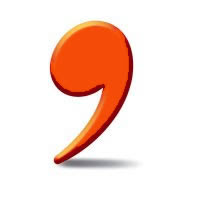Aprender Inglês

- Prepositions - Located In Time And Space
A preposition describes a relationship between other words in a sentence. In itself, a word like "in" or "after" is rather meaningless and hard to define in mere words. For instance, when you do try to define a preposition like "in" or "between" or "on,"...
- Talking Irish-english
By Richard Nordquist If you celebrate St. Patrick's Day with plastic pitchers of green beer and rousing choruses of "Danny Boy" (composed by an English lawyer) and "The Unicorn" (by Shel Silverstein), you may be roaring just about anywhere in the...
- What Is Input And Why You Need It
© Tomasz P. Szynalski, Antimoon.com What is input? Input is a short word for "sentences that you read or listen to". Input is the opposite of output, which means "sentences that you speak or write". The model of language learning Have you ever...
- Grammar Pet Peeves
by Craig I read an article the other day in The Huffington Post called "Grammar Pet Peeves: Who, Whom, None Is or Are", by author Robert Lane Green who also wrote "You Are What You Speak". It really struck me because many of the things he wrote about...
- "ghoti" = "fish"
By Josef Essberger Some languages are "phonetic". That means that you can look at a word and know how to say it. English is not phonetic. You cannot always look at an English word and know how to say it. You cannot always hear an English word and know...
Aprender Inglês
A Tip for the Possessive Apostrophe

Apostrophes need not be learning catastrophes
by Rolf Palmberg
What is the difference between
a.The boy's books are on the table, and
b.The boys' books are on the table ?
The position of the apostrophe in a noun (to indicate possession of something) often causes problems for ESL/EFL learners. Yet the rules are simple. In fact, learners only need to decide whether the possessive noun (the possessor, which, by the way, can also be a name) is singular or plural and whether or not it ends in -s in its written form.
The following rules apply:
1. If the possessive noun is singular, always add an apostrophe + s.
2. If the possessive noun does not end in -s (in its written form), always add an apostrophe + s.
3. If the possessive noun is plural and ends in -s (and this is a characteristic feature of the large majority of plural nouns), just add an apostrophe.
This is why you say James's books, the children's books, and even the boss's books. This is also why you don't know whether something belongs to one or several boys until you see the sentence in writing.
To simplify things further, all you really have to remember is Rule 3. If Rule 3 does not apply, always add an apostrophe + s.
(Note that American English does not always follow these rules.)
--------------------------------------------------------------------------------
© 2007 Rolf Palmberg
Rolf Palmberg is a Senior Lecturer at the Department of Teacher Education at Abo Akademi University in Vaasa, Finland, where he has taught EFL methodology since 1979. His publications comprise articles, reports, books and bibliographies in the fields of applied linguistics and foreign language teaching. He has given presentations at international conferences in several countries and numerous in-service courses on CALL and ICT in various educational institutions in Finland. Rolf Palmberg's CALL site is at: http://www.vasa.abo.fi/users/rpalmber/download.htm.
loading...
- Prepositions - Located In Time And Space
A preposition describes a relationship between other words in a sentence. In itself, a word like "in" or "after" is rather meaningless and hard to define in mere words. For instance, when you do try to define a preposition like "in" or "between" or "on,"...
- Talking Irish-english
By Richard Nordquist If you celebrate St. Patrick's Day with plastic pitchers of green beer and rousing choruses of "Danny Boy" (composed by an English lawyer) and "The Unicorn" (by Shel Silverstein), you may be roaring just about anywhere in the...
- What Is Input And Why You Need It
© Tomasz P. Szynalski, Antimoon.com What is input? Input is a short word for "sentences that you read or listen to". Input is the opposite of output, which means "sentences that you speak or write". The model of language learning Have you ever...
- Grammar Pet Peeves
by Craig I read an article the other day in The Huffington Post called "Grammar Pet Peeves: Who, Whom, None Is or Are", by author Robert Lane Green who also wrote "You Are What You Speak". It really struck me because many of the things he wrote about...
- "ghoti" = "fish"
By Josef Essberger Some languages are "phonetic". That means that you can look at a word and know how to say it. English is not phonetic. You cannot always look at an English word and know how to say it. You cannot always hear an English word and know...
